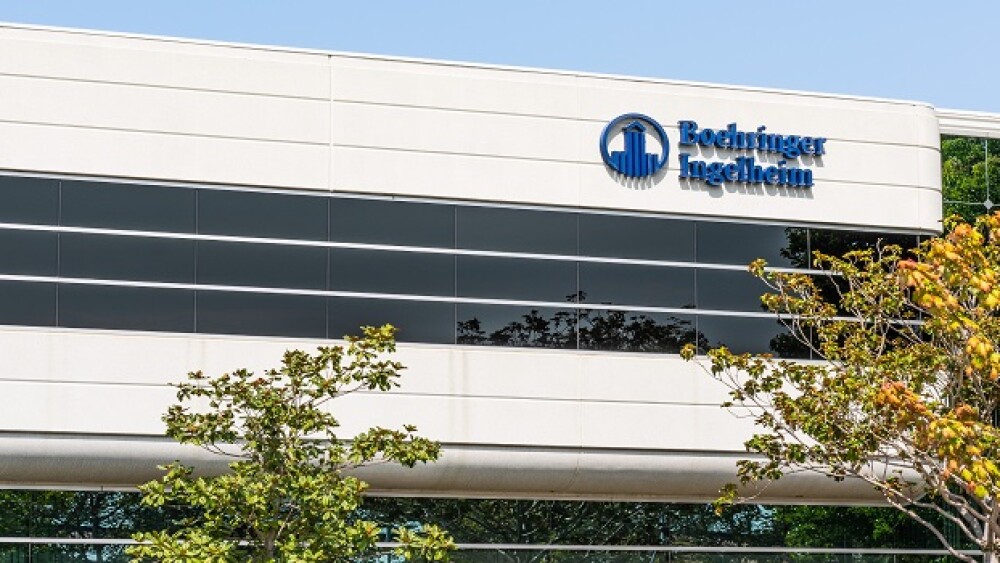BOULDER, Colo., Nov. 9 /PRNewswire-FirstCall/ -- Pharmion Corporation today released interim findings from its Phase 2 trial of Amrubicin in second-line chemo-sensitive small cell lung cancer (SCLC). Amrubicin, the company’s third-generation synthetic anthracycline, is a potent topoisomerase II inhibitor currently in development for the treatment of SCLC. These findings indicate favorable interim results in terms of response rate and survival for Amrubicin in second-line treatment of small-cell lung cancer patients with extensive disease (ED) SCLC. The early results of this study were presented at the 2007 Chemotherapy Foundation Symposium today in New York City.
“Treatment options for second-line SCLC are limited and preliminary data from the US-based Phase 2 sensitive SCLC trial indicate that Amrubicin may provide a new option for SCLC patients who desperately need more treatment choices,” said principal investigator Robert M. Jotte, MD, PhD, Medical Director of the Lung Cancer Clinic of the Rockies, Developmental Co-Chair USON Lung Committee. “As we near completion of the Phase 2 trial, we hope that accrual to the Phase 3 trial will be rapid and confirm the results of the US Phase 2 trial and similar trials in Japan.”
The trial presented today compares Amrubicin and topotecan in patients with ED-SCLC that initially responded to first-line platinum-based therapy but whose disease recurred or progressed at least 90 days after completion of first-line treatment (sensitive SCLC). Study participants are randomized in a 2:1 ratio to receive either IV Amrubicin (40mg/m2 daily for 3 days) or topotecan (1.5 mg/m2 daily for 5 days), both starting on Day 1 of a 21-day cycle.
Response data from 42 patients have been analyzed, 28 treated with Amrubicin and 14 with topotecan. Eleven of 28 (39 percent) patients who received one or more cycles of Amrubicin have demonstrated a response, including two complete responses (CR) and nine partial responses (PR). Eight of the responses are confirmed and three are pending follow-up scans. Two of 14 (14 percent) patients who received one or more cycles of topotecan had a response (both PRs). One is confirmed and one is pending a follow-up scan.
Survival times are not yet mature, however, at this time preliminary data already show an observed difference of 2.4 months in overall survival, which translates to a hazard ratio of 0.67, favoring Amrubicin.
The most common adverse events were hematological and were generally equal between the two arms. No classical anthracycline cardiotoxicity has been observed to date, supporting data from earlier Japanese studies that suggest Amrubicin may be devoid of this anthracycline-associated adverse event.
A second Amrubicin Phase 2 trial is also underway evaluating single-agent Amrubicin in patients with ED SCLC that are chemo-refractory or progressive within 90 days of completion of first-line platinum-based chemotherapy (refractory SCLC). Study participants receive Amrubicin (40 mg/m2 via 5-minute infusion daily for 3 days) on Day 1 of a 21-day cycle.
Enrollment in both second-line Phase 2 studies of Amrubicin is expected to complete by the end of 2007.
Pharmion has an additional ongoing Phase 2 study of Amrubicin in first line SCLC patients in association with the European Organization for the Research and Treatment of Cancer (EORTC). This study evaluates Amrubicin as single-agent or combination therapy with cisplatin versus cisplatin plus etoposide in previously untreated ED-SCLC patients. Preliminary data from this study are expected in the second half of 2008.
Pharmion recently initiated an international pivotal Phase 3 trial of Amrubicin versus topotecan as second-line treatment of small cell lung cancer (sensitive or refractory and limited or extensive disease). The randomized, controlled, multi-center study will compare Amrubicin to topotecan, the only approved chemotherapy for second-line treatment of SCLC in the US and EU. The primary endpoint of the study is overall survival. Enrollment in the study of 480 patients is underway. Pharmion has completed the Scientific Advice (SA) process with the European Medicines Agency (EMEA) and has reached Special Protocol Assessment (SPA) agreement with the US Food and Drug Administration (FDA) for the Amrubicin Phase 3 SCLC study.
About Amrubicin
Pharmion acquired the rights to Amrubicin in November 2006 through its acquisition of Cabrellis Pharmaceuticals. In 2002, Amrubicin was approved and launched for sale in Japan based on Phase 2 efficacy data in both SCLC and NSCLC. Since January 2005, Amrubicin has been marketed by Nippon Kayaku, a Japanese pharmaceutical firm focused on oncology, which licensed Japanese marketing rights from Dainippon Sumitomo, the original developer of Amrubicin.
About Small Cell Lung Cancer
Small cell lung cancer is a disease in which malignant cells form in the tissues of the lung, and which occurs almost exclusively in people who smoke. While small cell lung cancer constitutes approximately 15 percent of all lung cancers, SCLC tends to be more aggressive and fast growing than the more common non-small cell lung cancer. Of the estimated 62,000 patients diagnosed with SCLC each year in the US and EU, approximately 60 percent of patients have extensive disease at diagnosis, and the remaining 40 percent present with localized, or limited stage, disease.
About Pharmion
Pharmion is a leading global oncology company uniquely focused on acquiring, developing and commercializing innovative products for the treatment of hematology and oncology patients in the U.S., Europe and additional international markets. Pharmion has a number of products on the market including the world’s first approved epigenetic drug, Vidaza(R), a DNA demethylating agent. For additional information about Pharmion, please visit the company’s website at http://www.pharmion.com.
Safe Harbor Statement under the Private Securities Litigation Reform Act of 1995:
This release contains forward-looking statements, including summary statements relating to the interim or preliminary results of clinical trials involving Amrubicin. Such statements are based on current expectations and involve a number of known and unknown risks and uncertainties that could cause the final results to differ significantly from the results summarized by such statements. Preliminary results may not be confirmed upon final analysis of the detailed results of a trial and additional information relating to the safety, efficacy or tolerability of Amrubicin may be discovered upon further analysis of clinical trial data and upon review and analysis of additional clinical trial data from this or other clinical trials. Additional risks and uncertainties relating to Pharmion and its business can be found in the “Risk Factors” section of Pharmion’s Quarterly Report on Form 10-Q for the quarterly period ended September 30, 2007, its Annual Report on Form 10-K for the year ended December 31, 2006 and in Pharmion’s other filings with the U.S. Securities and Exchange Commission. Forward-looking statements speak only as of the date on which they are made, and Pharmion undertakes no obligation to update publicly or revise any forward-looking statement, whether as a result of new information, future developments or otherwise. Pharmion also disclaims any duty to comment upon or correct information that may be contained in reports published by the investment community.
CONTACT: Breanna Burkart or Anna Sussman, Directors, Investor Relations
and Corporate Communications, both of Pharmion Corporation, +1-720-564-9144
or +1-720-564-9143
Web site: http://www.pharmion.com//




